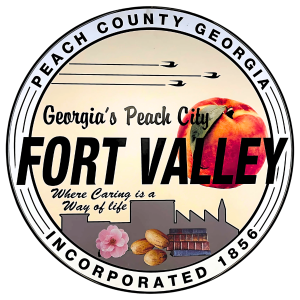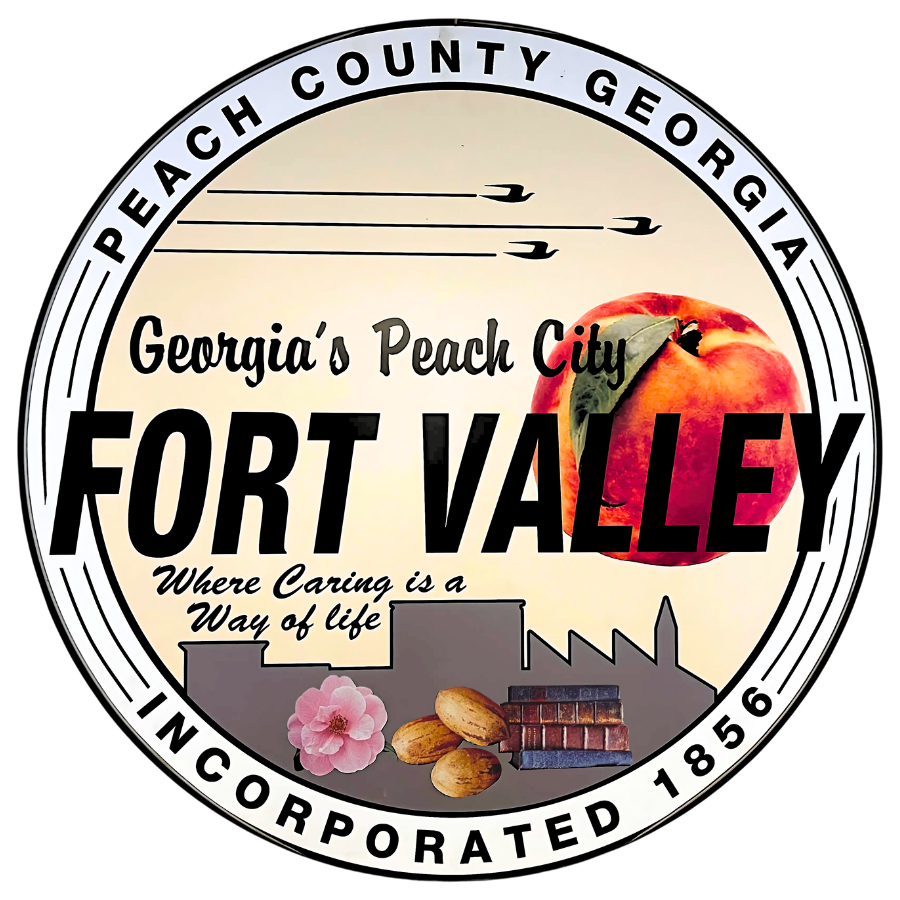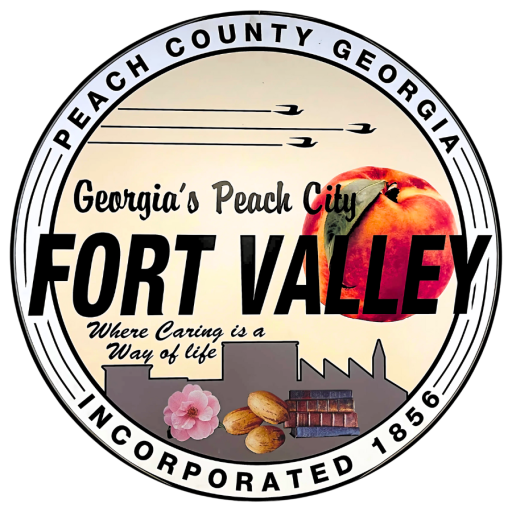Code Enforcement

Rhonda Walker,
Code Enforcement Officer
rwalker@fortvalleyga.org
Phone:
(478) 357-9256
Physical Address:
204 West Church Street
Fort Valley, GA 31030
Department Hours:
Monday – Friday
(Except Holidays)
8AM – 5PM
The City of Fort Valley operates in compliance with hundreds of written codes that are designed to maintain a healthy, safe and clean environment, carry out land use policy and preserve the quality-of-life standards that residents and businesses enjoy in our community.
There are many types of codes: City Codes, including Zoning Codes, Fire Codes, Uniform Building Codes, Uniform Housing Codes, Vehicle Codes and Penal Codes. Code enforcement is a responsibility shared by many city departments. To be effective and efficient, code enforcement also needs the cooperation of residents and businesses.
Because there are so many codes—many involving complex technical or legal issues—residents frequently have questions about code enforcement and their role in making Fort Valley a better place to live and work. The following information will answer the most frequently asked questions about code enforcement in our community.
How Are Codes Enforced?
The code enforcement process is typically initiated in several ways:
- in response to a compliant by an individual;
- Observation of a code violation by city staff or police officers as they patrol the community and do their jobs;
- As a consequence of an action (for example, an application for a building permit or a request for a zoning variance).
- The city also relies on residents to help identify possible code violations, particularly in these areas:
- Front yard storage
- Illegal signs, such as advertising flyers
- Graffiti on public or private property
- Shopping carts on streets, sidewalks, etc.
- Illegal dumping of garbage and debris
- Abandoned and/or inoperable vehicles
- Illegal dumping of oils and other hazardous materials into storm drains
- Overgrown foliage blocking stop signs, impeding sight of driveways or making corners dangerous
- Parking regulations in residential neighborhoods
- Residential businesses causing traffic/noise problems
- How do I notify the city about a possible code violation?
- You may file a complaint about a possible code violation in person, in writing, by phone or by using the form provided on this website.
Please be prepared with specific information, such as:
- the address of the property,
- detailed description of the situation, and
- the length of time you have observed the situation.
- You do not have to identify yourself, but having your name will assist us with follow-up and ensure we have all the information we need to resolve the situation.
How Are Code Violation Reports Handled?
City staff responds to code enforcement complaints according to the impact of the violation on the community. Situations that appear to pose a serious risk to health and safety are given top priority; others are pursued in the order in which they are received.
For all types of code complaints, the first step in the follow-up procedure is personal contact by a city staff member to see if a code violation exists and to request compliance. If the individual responsible for the situation is not available or appears unwilling to voluntarily correct the code violation in a timely manner, a notice of violation or a citation may be issued. The city may also take court action if the situation poses a significant risk to the community or if the individual has ignored previous notices/citations.
What Penalties Result from Code Violations?
In many cases, the individual responsible for the code violation is given the opportunity to voluntarily correct the situation and comply with current codes without a penalty. If the correction is not made, then the individual may be subject to fines and other penalties.
All city code violations are infractions or misdemeanors. For some serious code violations, usually involving major and immediate health of safety issues, criminal prosecution or civil injunctions may be used by the City to enforce code compliance.
The City of Fort Valley Code Enforcement Officer will enforce fees for non-city owned properties whereas the lot/yards are not maintained after a 14-day letter has been mailed to the property owner and a citation for nuisance.
The City of Fort Valley will not expend public funds on private property; therefore, the following are fees for non-compliance:
Yards/lots less than 2000 sq feet @ $50
Yards/lots between 2000 – 4000 sq ft @ $75
Yards/lots greater than 4000 sq ft @ $100
A lien will be placed against properties for unpaid fees. The City of Fort Valley will continue to seek ways for property owners to maintain their properties for the health, safety, and welfare of the residents of the City of Fort Valley.
Let’s Help Make Fort Valley a Better Place to Live For Everybody.
If you have any questions please contact Rhonda Walker, City of Fort Valley Code Enforcement Officer at 478-357-9256.
Chapter 46-11 Weeds, rubbish, etc., on private property; removal required; punishment for violation. Sec. 46-11. – Weeds, rubbish, etc., on private property; removal required; punishment for violation.
Every person, whether owner, tenant, agent, or employee, owning, holding or occupying property in the city shall at all times maintain such property, whether a vacant lot or otherwise, in a clean and sanitary condition, keeping all weeds, grass and undergrowth on such property cut and keeping all waste material, dead animals, trash and rubbish of every kind cleaned off of such property.
If any such person shall fail or refuse to cut and remove weeds, grass and undergrowth, or fail or refuse to clean up all such waste from such property within ten days after notice by an official or employee of the city, such person shall be punished as provided in section 1-12 of this Code.
c) The growth of grass, weeds, or undergrowth to a height in excess of 18 inches above the ground shall be deemed a violation of this section.
(Code 1982, § 11-11)
Ordinances Enforced by Code Enforcement
6-38. – Removal of certain signs
Any sign, painted or otherwise, which no longer advertises a bona fide business conducted, or a product sold, on the premises, or which becomes dilapidated, shall be removed by the owner, agent or person having the beneficial use of the building, pole or other structure upon which the sign may be found. Such removal will be within 30 days after receipt of written notification from the building inspector. Failure to comply with such notice within the time specified shall be sufficient cause for the building inspector to have such sign removed, whereas, any and all expenses of the removal shall be paid by the owner of the building, pole or other structure to which the sign is attached. If the owner should fail to make such payment, such amount shall be assessed against the property the same as unpaid taxes. Such sign shall be considered no longer advertising a bona fide business or product when the business or product has been removed from the premises for a period of 120 days.
6-40. – Political campaign signs
Political campaign signs announcing the candidates seeking public office, and other data pertinent thereto, shall be allowed any place within the city, as long as such signs are confined to private property, with the permission of the owner of such property, and removed within 14 days after the election or runoff election for which the signs are made. No political campaign signs shall be erected on, or fastened to, any public property.
Sec. 18-293. – Dwellings or other buildings or structures unfit for human habitation
(a) It is the duty of the owner of every dwelling or other building or structure or property within the municipality to construct and maintain such dwelling or other building or structure, or property in conformance with applicable codes in force within the municipality, or such ordinances which regulate and prohibit activities on property and which declare it to be a public nuisance to construct or maintain any dwelling or other building or structure or property in violation of such codes or ordinances.
(b) The public officer shall exercise the powers prescribed by the ordinances.
Sec. 18-294. – Conditions for determination of unfitness
The public officer may determine that a dwelling or other building or structure is unfit for human habitation or is unfit for its current commercial, industrial or business use if he finds that conditions exist in such building or other dwelling or structure which are dangerous or injurious to the health, safety or morals of the occupants of such dwelling or other building or structure; of the occupants of neighborhood dwellings or other buildings or structures; or of other residents of the city. Such conditions may include the following, without limiting the generality of the foregoing:
(1) Defects therein increasing the hazards of fire, accidents or other calamities;
(2) Lack of adequate ventilation, light or sanitary facilities;
(3) Dilapidation;
(4) Disrepair;
(5) Structural defects;
(6) Uncleanliness; and
(7) Vacant, dilapidated and being used in connection with the commission of drug crimes upon personal observation or report of a law enforcement agency and evidence of drug crimes being committed.
Litter
46-10. – Littering
It shall be unlawful for any person to sweep, throw, drop, litter or move any dirt, filth, paper, bottle, can, garbage or trash of any kind upon any street, sidewalk or other public place, or upon the property of another, without the consent of the owner or lawful occupant of the property.
Grass and Debris
Sec. 46-11. – Weeds, rubbish, etc., on private property; removal required; punishment for violation.
(a) Every person, whether owner, tenant, agent or employee, owning, holding or occupying property in the city shall at all times maintain such property, whether a vacant lot or otherwise, in a clean and sanitary condition, keeping all weeds, grass and undergrowth on such property cut and keeping all waste material, dead animals, trash and rubbish of every kind cleaned off of such property.
(b) If any such person shall fail or refuse to cut and remove weeds, grass and undergrowth, or fail or refuse to clean up all such waste from such property within ten days after notice by an official or employee of the city, such person shall be punished as provided in section 1-12 of this Code.
(c) The growth of grass, weeds or undergrowth to a height in excess of 18 inches above the ground shall be deemed a violation of this section.
Inoperable / Junked Vehicles
Sec. 46-14. – Junked and dismantled automobiles and discarded personal property—Maximum storage period
It shall be unlawful for any person to permit any furniture, appliance, machinery or equipment, including motor vehicles which are either in a wholly or partially rusted, wrecked, junked, dismantled or inoperative condition to remain on the premises of any dwelling, dwelling unit, place of business or vacant lot for a period in excess of 30 days.
Sec. 46-15. – Junked and dismantled automobiles and discarded personal property—Duty of owners, occupants and inhabitants.
It shall be the duty of owners, occupants and inhabitants of any building, dwelling or dwelling unit to keep the exterior of such building, dwelling or dwelling unit, including its premises, yards, lawns, courts and alleys, clean, clear and free of any accumulation or deposit of the items set forth in section 46-14; provided, the owner of a dwelling or building containing two or more dwelling units, tenants or occupants shall be responsible for maintaining the shared or public area of the dwelling or building and premises thereof. The same duty under this section shall rest upon the owner of any vacant lot.
Prohibited Signs on Utility Poles
90-9. – Signs on utility poles
It shall be unlawful to tack, staple or otherwise place any sign, bill, poster or advertisement of any nature on any pole or other fixture owned, used or maintained by any public utility.


